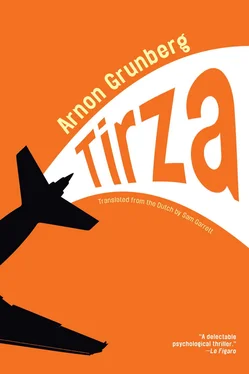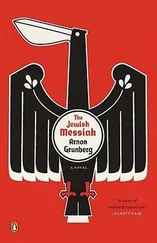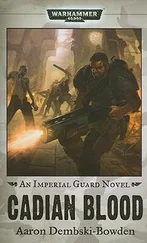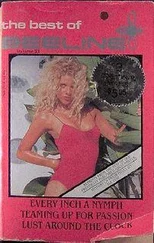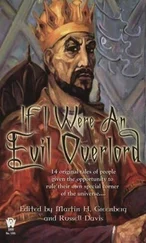The mother is not dead, because they will open its eyes. It flashes with her eyes. The stench ensures that ship's steward feels unwell. He has in any case the unpleasant feeling that he is going to be unwell, that he must give in. That He will go in this hut puke as a dog, that he has the floor to crawl in his own vomit.
'You Mean me?' he asks. You may 'speaks African?'
She moves its lips, they seem to say something, but there is no sound from her mouth.
'I mean not your mother,' he says to Kaisa. 'I understand its not.'
But also Kaisa remains silent.
'I do not understand you,' he says.
He kneels down at the bed. His pants is already stained. In Africa, it makes no difference. This is not the Van Eeghenstraat. In Africa makes little difference. Other country, other rules.
There are fly in the face of the woman.
He gives them away.
'I do not understand you,' he says, 'but I am a friend of your daughter Kaisa, a friend from the Netherlands.'
They now moves her hands.
He is looking forward, he tail to the moving hands as to an exotic puppet play, and it takes him a few seconds to understand that the deaf language. That they go out against him language speaking.
He is. Weather frunnikt he Colbert. He is looking for something in the inner bags. 'I am deaf people do not speak the language,' he says overly loud and clear.
But he thinks: she is deaf dumb, that is it. She is deaf stupid.
'What does your mother?' he asks. 'I understand its not.'
He shout: 'I am deaf people do not speak the language.'
Ship's steward kneels for Kaisa. 'I must continue,' he says. 'I must return to the city. I will give you a kiss, Kaisa, I can not continue. I will give you a kiss. Do you know what your mother says?'
Silence. The sound of insects. The fly valleys with dozens of the same amount on head and body of Kaisa's mother. An airport for fly is that body, nothing else. An airport.
'Do you want company, sir?' whispers Kaisa. 'Sir?'
'No, no,' he says. 'No, no. She speaks the deaf language. You can see it not? She speaks the deaf language. Your mother. She says something, but we do not know what.'
He is looking for in his briefcase, but there is nothing. At least nothing helps him further.
From his trouser pockets he retrieves all loose Namibian dollars which he has, also in his inner pocket he still finds what money and with that money he sprinkles the body of the woman on the bed. Still moves her hands, manically. Maybe it is him in sign language to the swearing at.
'Here,' he says, 'Here, I do not understand you because I am the deaf do not speak the language. Here is some more money. For groceries. Or… for whatever.'
He shall leave the hut as a refugee. He rent, but his feet do too much pain to the long full account. He passes identical edifice. The smell of rot remains him. As Kaisa. They will be behind him. Quick she is. Very fast. She picks up his hand. And he goes back. He squeeze in the hands of Kaisa.
They walk along the men who meat roasting. They conjure up something to him, the men, but a ship's steward not remain. He also has no idea what they call.
'a taxi,' he says, 'we must maintain a taxi. Where can we find a taxi?'
He climbs up over the guard rail, he waves with his briefcase.
There are no cars.
Still it smell the stench. The death in Africa stinks.
'You don't say that you have left the mother so?' he asks. 'I have its money. They must see a doctor. I do not know what she has, but they have to go to a doctor. A doctor who sign language mastered.'
He bows to the child.
'You must now back home. You have to release it, you need to release the people, I have the people released. But you are too young to have them, you must hold them. That is why you must go back to your mother.'
A car comes along. He waves with his briefcase.
The vehicle does not stop.
Wind blows. There are blowing fine sand in his eyes.
'Kaisa,' he says, 'You can't. I go to the desert. I can not going anywhere. I am going to disappear. You can not. You should only do disappear. All you need to do is ultimately only, of course, as it is, but disappear you should really only do so. There you can use no one, especially children, Kaisa. No children.'
He runs a few meters along the guard rail. A truck over. The twilight sets in.
Kaisa runs behind him. She picks up his hand. 'Go away,' he calls. He puts his hat and waves them as with a whisk. 'Go away.'
He bending itself. He kneels on the hot asphalt. His hat in his hand, his briefcase under his arm.
'Kaisa, see you than not who i am?' he whispers. 'you see it not? Do you understand it not? I am what Tirza has made ill, I am the disease of the white middle class. I am the eetziekte.'
They remain stationary. She is not impressed by his words.
'What do you want of me?' he calls and he is again. 'What is it that you want me?'
She is coming closer. She pulls his hand, he must bend. He bending, deeper and deeper.
It puts its mouth when his ear and she whispers: 'Do you want company, sir?'
In Hertz he asks the same evening even to a jeep, but that they are not more. Also no small. They still have a light blue Toyota in the offer.
'Can I place the desert in?' he informs.
'If you do carefully,' says the girl from the rental company, 'You can create a final note. Do not drive the vehicle and in a sand storm. If there is a sand storm comes up, stop immediately. Also not slow driving. It has no meaning. You make the car there is only broken note.'
'Meteen stop,' reiterates ship's steward.
Later that evening he leaves the Heinitzburghotel. Because he has not checked out, he must pay an extra night. He did not care. Who loses enough, lose on a given moment are also efficiency. You put the economy as an unnecessary piece of clothing.
The people of the hotel it friendly but with clear remote Pentagon. Nobody informs more to his daughter. Or it is found. Or he is now going. The tip that he has on the bedside table left for the maids is him by the mistress of the nagebracht the maids, an old white woman. "It has you forget, Mr ship's steward.'
He does not dare to say that he has not forgotten the money, ashamed he takes.
During the day a young man who acts as a gardener helps him with the luggage. If the bag in the back of the Toyota, he points on his own shoes. Trainers.
'They are too big, gentleman,' he says. 'As four or five sizes.'
The child Hofmeesters hand, she looks to the man, whose skin color is darker than that of her.
'I have received them, but they are much too large,' says the gardener. 'I can't walk.'
The door of the door is already open. They are ready to leave, Tirza's father and his reisgenote.
"Have you money for good shoes?' The voice of the gardener sounds as if it is a question to which he should not have been. A PROHIBITED question.
Ship's steward looks to the bare feet of the Child on the shoes of the man. Also he also wonders what is such a problem is to large shoes. Better than no shoes, not?
Although a ship's steward the man for twenty Namibian dollars, gives him another hundred. He puts the child seats, show how the belt must be fastened.
His briefcase and his hat he explains on the rear bench seat. He waves to the gardener which if any of the staff outside the Dutchman who has remained so much longer than he had originally planned pentagon to do so.
Ship's steward is moving in the direction of Okahandja. It is already dark. The radio is on, the German program of Namibia. With schlager music. Music elsewhere hardly or not at all to hear. 'Theo wir drive'n nach Lodz. Steh Auf, du Altes Murmeltier, Bevor ich which verlier patience. Theo, wir drive'n nach Lodz.' ship's steward here. 'Du Altes Murmeltier,' he panting slightly. Occasionally he looks at the girl next to him, but they do not seem to respond to the music, nor on its geneurie.
Читать дальше
